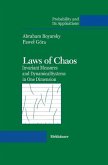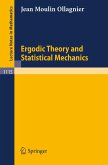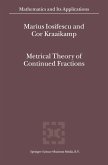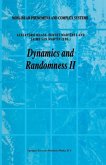Ergodic theory is one of the few branches of mathematics which has changed radically during the last two decades. Before this period, with a small number of exceptions, ergodic theory dealt primarily with averaging problems and general qualitative questions, while now it is a powerful amalgam of methods used for the analysis of statistical properties of dyna mical systems. For this reason, the problems of ergodic theory now interest not only the mathematician, but also the research worker in physics, biology, chemistry, etc. The outline of this book became clear to us nearly ten years ago but, for various reasons, its writing demanded a long period of time. The main principle, which we adhered to from the beginning, was to develop the approaches and methods or ergodic theory in the study of numerous concrete examples. Because of this, Part I of the book contains the description of various classes of dynamical systems, and their elementary analysis on the basis of the fundamental notions of ergodicity, mixing, and spectra of dynamical systems. Here, as in many other cases, the adjective" elementary" i~ not synonymous with "simple. " Part II is devoted to "abstract ergodic theory. " It includes the construc tion of direct and skew products of dynamical systems, the Rohlin-Halmos lemma, and the theory of special representations of dynamical systems with continuous time. A considerable part deals with entropy.
Dieser Download kann aus rechtlichen Gründen nur mit Rechnungsadresse in A, B, BG, CY, CZ, D, DK, EW, E, FIN, F, GR, HR, H, IRL, I, LT, L, LR, M, NL, PL, P, R, S, SLO, SK ausgeliefert werden.









